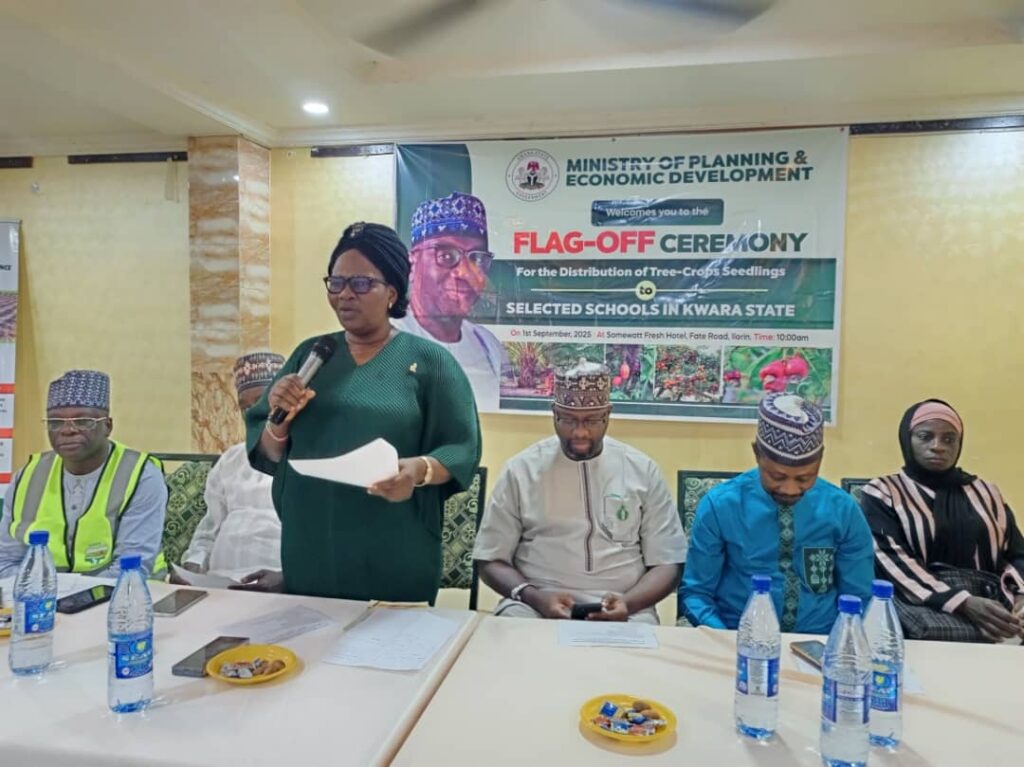As part of the Federal Government’s Food Systems Transformation Pathways (FSTP) agenda, the Kwara State Government, in collaboration with the Agro-Climate Resilience in Semi-Arid Landscapes (ACReSAL) project, has launched the distribution of 14,180 economic tree seedlings to 255 schools across the state’s 16 Local Government Areas.
Speaking at the flag-off ceremony in Ilorin on Monday, the State Commissioner for Planning and Economic Development and Chairperson of the State Steering Committee for FSTP, Chief (Dr.) Mary Ronke Arinde, said the initiative would deliver both educational and economic benefits to schools.
According to her, the beneficiaries include 80 primary schools, 170 secondary schools, and five tertiary institutions, with seedlings of cocoa, cashew, oil palm, and orange trees to be distributed.
“These orchards will not only teach students about crops and their products but will also serve as research plantations for tertiary institutions. We also gave local government chairmen the opportunity to nominate two schools each to benefit from this project,” she said.
Arinde added that, in the long term, schools could generate revenue from the orchards and reinvest in other agricultural ventures such as animal husbandry and fisheries. She urged supervising agencies including SUBEB, the Teaching Service Commission, and the Ministry of Tertiary Education to ensure proper monitoring through follow-up visits.
Commending Governor Abdulrahman Abdulrazaq’s commitment to food security, Arinde praised the ACReSAL team, led by Alhaji Aregbe Shamsudeen, for ensuring timely delivery of the seedlings.
Also speaking, the State Director of Planning, Alhaji Kayode Alimi, stressed the importance of school gardens in promoting agricultural education and inspiring students to embrace farming. He said the initiative would provide gardening tools and seedlings for students to establish personal gardens under supervision.
“This effort will create eco-friendly school environments and inspire students to develop a passion for agriculture, food security, and self-reliance,” Alimi stated.
On his part, the Commissioner for Education and Human Capital Development, Dr. Lawal Olalekan Olohungbebe, emphasised the role of trees in protecting education infrastructure and preserving school environments. He announced plans to set up a committee comprising officials from the Quality Assurance Bureau and School Services to inspect and monitor schools’ compliance with the initiative.
The event concluded with a practical session on proper care and management of the seedlings to ensure healthy growth and sustainability.















